- Details
- Written by Gordon Prentice
Former Liberal Transportation Minister, Steven Del Duca, today brands Doug Ford a hypocrite for abolishing direct elections for Regional Chairs while telling the media yesterday:
“I was elected … and the judge was appointed”
In an opinion piece in the Toronto Star Del Duca, a former candidate for York Regional Chair who has been biting his tongue since the planned elections were cancelled, says Ford clearly believes:
appointed office-holders are not as legitimate as those chosen by the people.
Putting aside the absurdity and the dangerousness of his assault on the independence and freedom of the judiciary, Ford’s latest comments are ironic and hypocritical.
How can it be that the premier believes a resident in Peel shouldn’t have the right to vote for their regional chair, when someone living nearby in Halton does?
And given we now know Ford believes elected officials are “above” appointed officials somehow, will he treat the elected regional chairs of Durham, Halton and Waterloo better than he will the appointed chairs of Peel, York, Niagara and Muskoka?
Fair point.
A majority of current members of York Regional Council prefer appointing the Regional Chair – with all the accompanying back-room deals and trade-offs - rather than risk asking the voters. Some of them - such as Aurora's ineffective Geoffrey Dawe - are impertinently standing for re-election on 22 October. Here is the list:
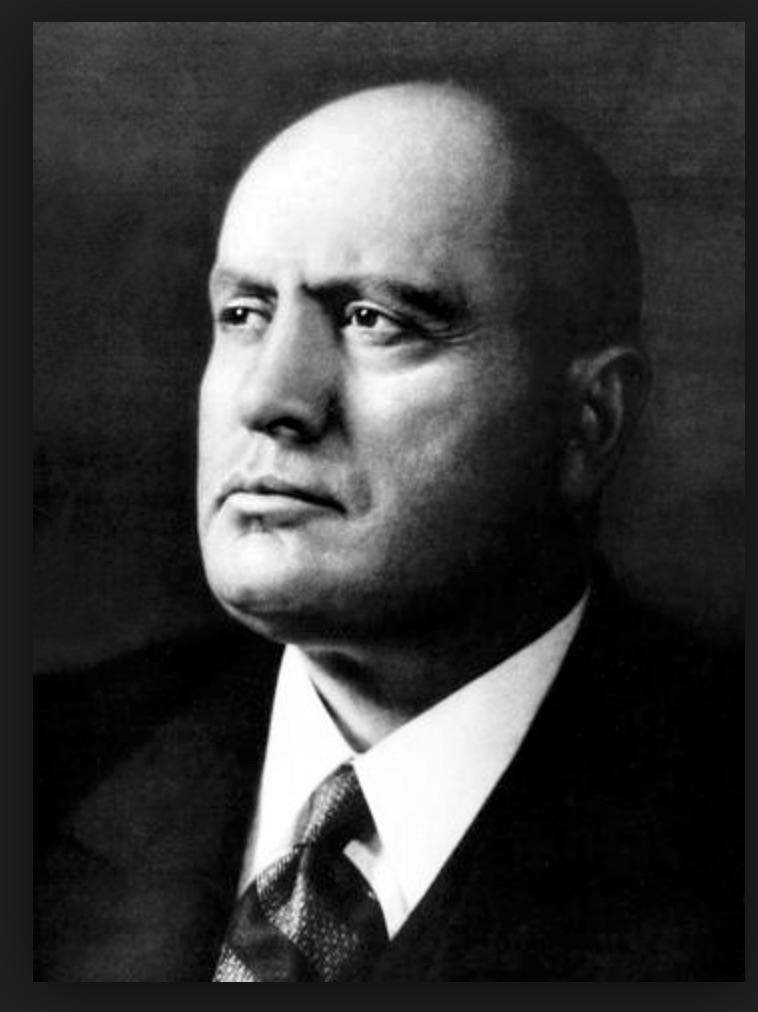
In favour of direct election by the voters at large: Joe Li (Markham), John Taylor (Newmarket), Justin Altmann (Whitchurch-Stouffville), Nirmala Armstrong (Markham) and Jim Jones (Markham).
Against direct election: Steve Pellegrini (King), Margaret Quirk (Georgina), Gino Rosatti (Vaughan), Frank Scarpitti (Markham), Vito Spatafora (Richmond Hill), Tony Van Bynen (Newmarket), David Barrow (Richmond Hill), Maurizio Bevilacqua (Vaughan), Geoffrey Dawe (Aurora), Michael Di Biase (Vaughan), Mario Ferri (Vaughan), Virginia Hackson (East Gwillimbury), Jack Heath (Markham), Brenda Hogg (Richmond Hill).
Ford promises a Free vote.
Yesterday, Ford promised a free vote to PC MPPs on the reintroduced Bill 5. Here is the exchange during his Press Conference:
Reporter: “On Wednesday you’ll have to introduce debate on the “Notwithstanding Clause”. In voting the notwithstanding clause will this be a whipped vote? Will you be forcing… the Tories have a majority… but will you be forcing your MPPs to vote for this initiative or will this be a free vote?
Ford: “It is a free vote. I don’t believe, my friends, in whipping the vote. Our team is together on this. Our Cabinet is 1000% behind this decision. And we just don’t go out there and put laws out there willy-nilly. We consult.
We consult with our Cabinet. We go back to the election and to the promises we made and what we were democratically elected on. And we are going to fulfil those promises to the people of Ontario because they are the judge and jury of the people of Ontario. And when we cross that line that’s very concerning to me as Premier.”
Ford had of course already decided on the Government's response to Mr Justice Belobaba's ruling before the Cabinet had time to meet.
Party Discipline
Party discipline is very strong at Queen’s Park and I suspect very few, if any, will wish to take up Il Duce's offer, fearing it will damage their standing in his eyes.
But wouldn’t it be refreshing if one or two PC members were to voice their concerns?
Admittedly it would be pure Alice in Wonderland to expect Caroline Mulroney to express any reservations. She is, after all, Attorney General.
But what about Christine Elliott? Another lawyer. Will she deconstruct Mr Justice Belobaba’s ruling tomorrow? Telling us how he got it all wrong.
Or will she be Miss Invisible and stay away?
This email address is being protected from spambots. You need JavaScript enabled to view it.
- Details
- Written by Gordon Prentice
- Details
- Written by Gordon Prentice
Tomorrow (Monday 10 September 2018) Mr Justice Belobaba is expected to rule on whether Doug Ford’s Better Local Government Act – cutting the number of Toronto City Councillors to 25 - will be struck down or be allowed to stand. (The Act is also known as Bill 5.)
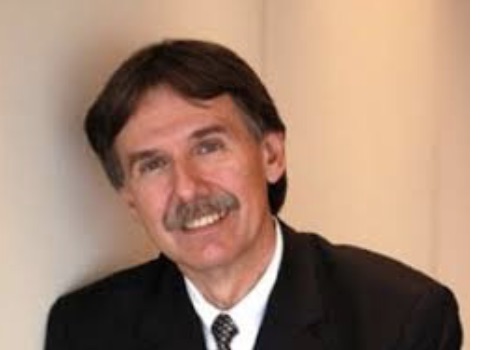
He is not expected to rule on the cancellation of the direct elections for Regional Chairs in York, Peel and Niagara and in the District of Muskoka.
I first contacted my MPP, Deputy PC Leader Christine Elliott, about her views on the cancellation of the direct elections for Regional Chairs in late July 2018 but despite three emails and a visit to her constituency office I have heard nothing. My next step is to request a face to face meeting.
Ten days ago Mr Justice Belobaba heard from a string of applicants asking the Court to intervene. I was there to listen and learn.
This email address is being protected from spambots. You need JavaScript enabled to view it.
____________________________________
It is Friday 31 August 2018 and I am in Toronto sitting in the biggest Courtroom in Ontario, Courtroom 6, 361 University Avenue. It is packed. The Court is absolutely infested with lawyers - in their black robes and white legal collars in front of me and in their business suits all around me. Indeed, I am sitting next to one from the City of Toronto and get chatting to him. He says:
“I am not answering any questions.”
I say
“I am not going to ask you any.”
But I do anyway. We rise as the Judge enters. Now the Court Usher cries:
“Long live the Queen! Please be seated.”
Mr Justice Belobaba has a mountain of work on his plate and he tells us things may slip and his ruling may be handed down on Tuesday 11 September. He says he needs two weekends and a working week to get through all the material. The deadline for nominations for Toronto City Councillors is 14 September.
Direct Elections for Regional Chair
The Judge is focussing solely on the Toronto election. He tells us he intends put to one side for the moment the two other pressing issues: scrapping the direct elections for Regional Chairs in York, Peel and Niagara and in the District of Muskoka and the planned elections for school board trustees in Toronto.
He identifies and greets Counsel. He tells them he has read 80% of all the submissions which lie out of view, in crates, by his feet. He says he needs their help to get to the core issues. He says:
“I am not too sure which way I should decide and that’s a good thing.”
But he lets us into his thinking. The Act may have implications for Charter Rights, for freedom of expression. He also wonders aloud how many people a councillor can effectively represent. These and related issues are the ones he wants to explore.
Now, in turns, the lawyers are on their feet addressing the judge but no-one else can hear what they are saying. The sole microphone is on a lectern which seems to run on wheels between the first six rows of seats reserved for Counsel.
The Judge has a request for the Premier. If the Province is going to save $25m by cutting Toronto City Council by half he wants $1m to come to the Courts so they can buy more microphones! I am warming to this Judge and his easy humour.
Now Diana Dimmer, representing the City of Toronto, is on her feet. She tells us the actions of the Province are contrary to democratic principles and Charter Rights. She says there is no precedent for a Government to interfere “mid-stream” in an election.
Ford supported boundary review.
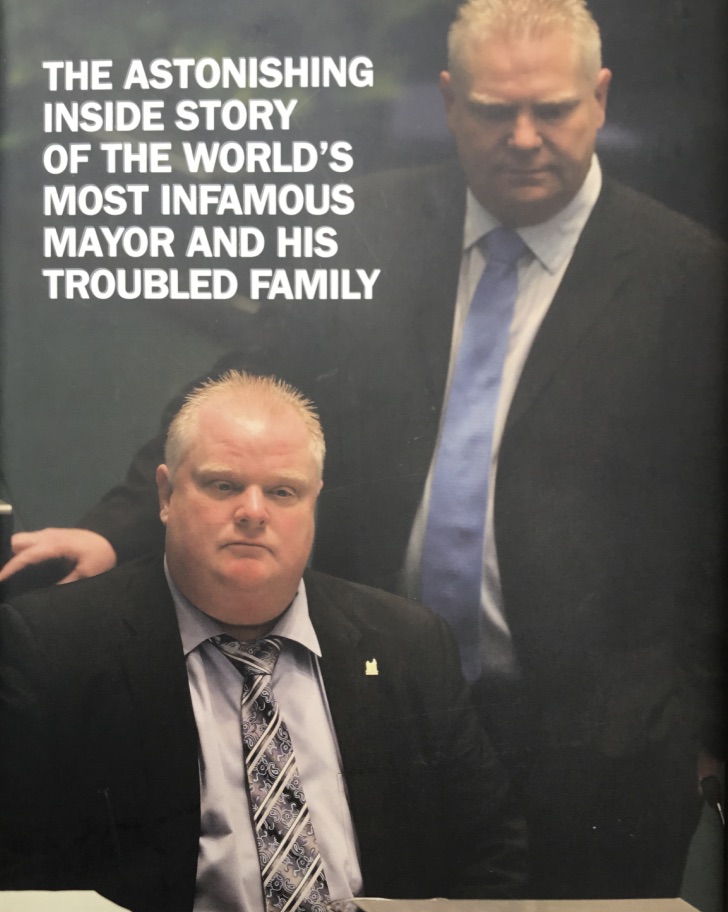
She tells the Judge the City had powers to deal with Ward boundaries and composition and these have now been taken away by the Act. She says the City commissioned a Ward boundary review in 2013 from independent consultants and the recommendations were being implemented – until Bill 5 threw a spanner in the works (my words). She says Doug Ford as a councillor supported the review. She says the key guiding principle behind the review is “effective representation”. The Province is just focussing on one factor – parity – to the exclusion of all others. Now she is taking us to the relevant case law before pointing out the obvious – that absolute voter parity is impossible. Now we are hearing about projected population growth and how that could justify a departure from strict parity. Ours, she says, is a representative democracy.
Now the Judge is talking about people’s right to bring grievances to their representatives. Is it possible for councillors representing more than 100,000 people to deal adequately with speed bumps, manhole covers and the multitude of other matters local councillors have to deal with? He says he wants Counsel for the Province to help him understand its thinking.
Now Ms Dimmer is telling us the Province did not consider the role of the councillor at any stage. She quotes Doug Ford who believes good government can be delivered by 7-9 people. Anything more than 20 and nothing gets done. So, even by the Premier’s own criteria, a Council of 25 will not get anything done. Now she is quoting the Ontario Municipal Board and sums up:
“If effective representation is the goal then 47 councillors reflects that goal.”
There is not a single municipality in Ontario where wards are based on Provincial Parliamentary boundaries – except Toronto. Now Mr Glen Chu, Counsel for the City of Toronto, is on his feet.
The Judge tells him the Province can do what the heck they like providing they don’t breach the Charter of Rights and Freedoms. No?
Now the lawyers are diving deep into the legal undergrowth. I hear about BC v Imperial Tobacco and the Christie case. They are now talking about the principles of the unwritten constitution and the rule of law. “State actors” follow the rule of law.
Can the Courts strike down Primary Law?
The Judge asks if unwritten constitutional principles can set aside primary law – an Act of Parliament, not simply secondary legislation and regulations made by Ministers. The Judge is clearly concerned about the judiciary overreaching itself and striking down primary law.
The Judge reminds us that Queen’s Park is democratically elected.
“If all you have going for you is unwritten constitutional principles… it’s not enough.”
Now I learn from the Carter v Saskatchewan case that the arrangements for voting must be compliant with Charter rights on “effective representation”. Otherwise the Province could legislate for a two ward system for Toronto. Clearly, this would be absurd.
Now the Judge is focussing on the Province’s factum (simply a statement of the facts of the case). He quotes the Province’s view that reverting back to a 47 Ward election at this point is impossible. He says the City Clerk believes “it is simply not feasible”. The election will be controverted.
Ms Dimmer insists a 47 Ward election can be run.
Now Howard Goldblatt is on his feet. He is representing Chris Moise and two other applicants challenging the Province. He is looking at the application of Charter Rights and how Ford’s Bill impacts on these.
The Judge says:
“This is where the rubber hits the road.”
Now I am learning about the Harper case (2004) and Figorola (2003) and others and how these cases show Charter rights are mutually complimentary. Goldblatt tells the Judge that Bill 5 “trounces” on meaningful representation, racialized minorities, the LGBQ community and so on.
Whichever way the Judge’s decision goes there will inevitably be an appeal from the “losing” side. Given the telescoped timetable I am not sure where this leaves us.
Now Goldblatt is quoting from an “unofficial” transcript of the City Council meeting on 20 August. His clerks and law students have been burning the midnight oil, transcribing everything that was said. Phew!
He quotes the City Clerk telling councillors that she cannot conduct two different elections (47 Wards and 25 Wards) at the same time.
Elections are about rules
Goldblatt asks: What is at stake? And then answers his own question. It is about the right to participate in elections. And elections are about rules. The Election campaign started on 1 May 2018 and registration closed on 27 July 2018. Candidates have been campaigning, exercising their freedom of speech. But there is a complementary freedom – to receive those expressions. People had a right to hear about the candidates’ election platforms based on the 47 Ward configuration.

The Judge nods. He says Bill 5 came down like a hammer in the middle of the election.
Now Goldblatt is spelling out the consequences of Bill 5 for candidates. He says the candidates who have “a right to expressive activity” which Bill 5 has “rendered moot”. Candidates have got to start all over again. People who have donated money to candidates may have reached their limit under legislation and candidates “can’t go back to the well” and ask for more cash. Hmmm. This hadn’t occurred to me.
Now one of Goldblatt’s colleagues rises to amplify some of the points made earlier about freedom of association. She talks about the “balance of power” and how minorities of every hue (and also women) can assert themselves. To do this they need to come together during an election and Bill 5 “impacted” on this.
She says Bill 5 disadvantaged candidates and community groups with limited financial resources; it disadvantaged groups by changing ward boundaries and truncating the time to associate and campaign. And it also strengthens the position of incumbents.
The Province says this is all nonsense and that all candidates have been equally impacted by Bill 5.
Now the lawyers are galloping along, telling us that what has happened is unprecedented in Common Law jurisdictions – changing the rules of the game two thirds of the way through the election campaign. There are precedents for the Courts intervening when the legislature goes too far. Now we are on to Quebec secession and what constitutes a “majority”.
The Judge says Parliament can pass whatever laws it wants – even if they are draconian. He says this to provoke a reaction from the lawyers in front of him:
“They can be dumb draconian laws.”
Not so. In the absence of “pressing and substantial reasons” such as insurrection the Judge is told:
“Once you start an election process the Government has got to stay out of the way. There has to be clear unchanging rules for the election period. At this stage it is a matter of fairness.”
Now the lawyer representing Toronto School Boards is on his feet. He says the school board elections flow from the Education Act and regulations made under it and these remain untouched. The Judge says he cannot stray from the main point of issue and hopes the Government and the School Boards can sit down and sort things out.
Procedural Fairness "thrown in the garbage"
Now another lawyer for the applicants is on his feet. He needs no microphone. His booming voice tells us candidates have been disadvantaged by Bill 5 and procedural fairness has been thrown in the garbage. Bill 5 is inconsistent with section 1 of the City of Toronto Act which has not been repealed:
The City of Toronto exists for the purpose of providing good government with respect to matters within its jurisdiction, and the city council is a democratically elected government which is responsible and accountable.
The Government repealed sections of the City of Toronto Act but not that one. He says Toronto has been singled out for special treatment “based on no evidence”. There has been no parity of treatment with other municipalities.
Now Robin Kumar Basu is on his feet, representing the Attorney General of Ontario (which sounds a lot weightier than Caroline Mulroney).
Basu, short in stature, is another lawyer with a voice that carries, loudly reminding us that the City Clerk has told us she can’t revert back to a 47 Ward election without unacceptable risks. He says the case is only about the 2018 election. There is time for the Province – should it wish – to look again at the format for future elections. He says the Wards had “gotten out of whack” in terms of parity.
He compares Willowdale Ward with 97,000 voters and Danforth with 45,000. Even with the 47 Ward model there is a 38% variance. (This is because of anticipated future growth which is built into the model.) He says the new Wards will be based on Federal Riding boundaries and these are reviewed every ten years.
Basu is now getting a bit hyper, diving into the statistics and doing calculations out loud as if to prove he can do mental arithmetic. He is testing the patience of the Judge who tells us he knows the facts and wants Mr Basu quickly to get on to the law. Squash!
Basu hands over to a colleague who tells us the legislature is sovereign and it can do what it likes; section 3 of the Charter which gives us the right to vote in Federal and Provincial elections does not apply to municipalities and section 2b of the Charter cannot be used to “constitutionalise” municipalities to encompass the right to vote.
The Judge says Queen’s Park is sovereign within its own bailiwick
“providing it doesn’t breach Charter rights”.
Now we are submerged in case law. I learn there is no constitutionally entrenched right to vote in a referendum. The Province says that if there is a guaranteed right to vote for municipalities we could be setting up a third order of Government.
All this sounds like a lot of old baloney to me but the gowns and collars up front can make a silk purse out of a sow’s ear.
Municipalities have no constitutional status
Now we are hearing about the Carter case and Amalgamation. Basu is now back on his feet and going on about the Charlottetown process. He switches gear and tells us the Government can basically do what it likes and there will always be winners and losers. That’s just the way it is. Municipalities do not have constitutional status. (The flip side is that since 1867 municipal voters have enjoyed democratic rights.)
Now he is talking about marijuana and where it should be sold. If it is sold on-line then people who campaigned to keep stores out of their neighbourhoods would have wasted countless hours. It is too bad people spent time campaigning for an election that isn’t going to happen but that’s life. I am not convinced by the example but Basu clearly believes he has hit the bullseye.
Now Basu challenges the Judge on his (the Judge’s) view that the workload of councillors is heavier (in terms of caseload) than MPs or MPPs. No says Basu. MPs deal with immigration for example which is very time-consuming. And MPPs have education, social welfare and provincial roads – to name a few – on their plates.
Now the applicants’ lawyers are invited to challenge the points made by Basu.
Glen Kwok Chu for the City of Toronto is on his feet zeroing in on Bill 5 and Charter rights -what the Judge has repeatedly told us he is focussed on. We shouldn’t be talking about Parliamentary but constitutional supremacy. And the Charter is a check on what Governments can do.
“Charter rights overlap and inform Charter analysis.”
Now a new lawyer rises to speak, reminding us that the Government’s rational for Bill 5 was to save money. He says he objects to the notion that parity was the “animating objective”. There wasn’t a mention of cutting the City Council by half in the election campaign.
He says that the Attorney General is of course free to argue that a smaller Toronto City Council would be more effective but there is no evidence that this is the case. And if the Council is dysfunctional then perhaps there are other reasons beyond size.
What is dysfunctional? 
Now the Judge is asking what the Provincial Government could have done short of Bill 5 to improve the efficiency of Toronto City Council. Mr Chu for the City tells him there is nothing before the Court on what is meant by dysfunctional. Now they are talking about Doug Ford bemoaning the fact that the Council spent ten hours discussing Mrs Jones and her cat in the tree.
Chu returns to the question of what was said by the City Clerk on election readiness. He says Basu quoted her views expressed before the Council meeting on 20 August.
“Three days later (on 20 August) the clerk took a far more equivocal attitude.”
Now Mr Rocco Achampong is on his feet. This is the man who set the whole ball rolling as the first applicant to challenge the Government in Court. He was later joined by the City of Toronto and others. He was a candidate for City Council as well as being a practising lawyer.
It is now around 6pm on the Friday of the long weekend - way past the Court’s usual bed time. The Judge tells Achampong to take him straight to the legal issues.
The Charter restricts what Governments can and cannot do. For example, Parliament cannot sit for longer than five years. He says the Municipal Elections Act and “other Acts” obliges the Clerk to give “reasonable notice” of elections and the arrangements to be followed. He gives examples of people who gave up the jobs to run for office. He himself took time out from his law practice.
He challenges Basu’s view that the Province can change the rules as it pleases. No.
He says the rules should be “stable, predictable and ordered.”
Voter parity was never the motivation.
The Judge is now wrapping things up. He asks if there is anything he may have missed. Anything he should read/re-read?
A few lawyers rise to briefly regurgitate what they said earlier and then it’s all over. We all stand and Mr Justice Belobaba departs for a stiff drink (I imagine) before sealing himself in his law library for ten days.
I see Mario Racco is in Court and I say hello. Racco was running for York Regional Chair before Ford pulled the rug from under his feet.
I ask him what is going to happen now.
He says Markham’s Mayor, Frank Scarpitti, may run for York Regional Chair if he thinks he has a chance of winning. (After all, there are only twenty “electors” to canvass.)
And if he wins? I suppose that means a Mayoral vacancy in Markham and a very expensive election.
- Details
- Written by Gordon Prentice
Yesterday, another old tree bites the dust in Beechwood Crescent.
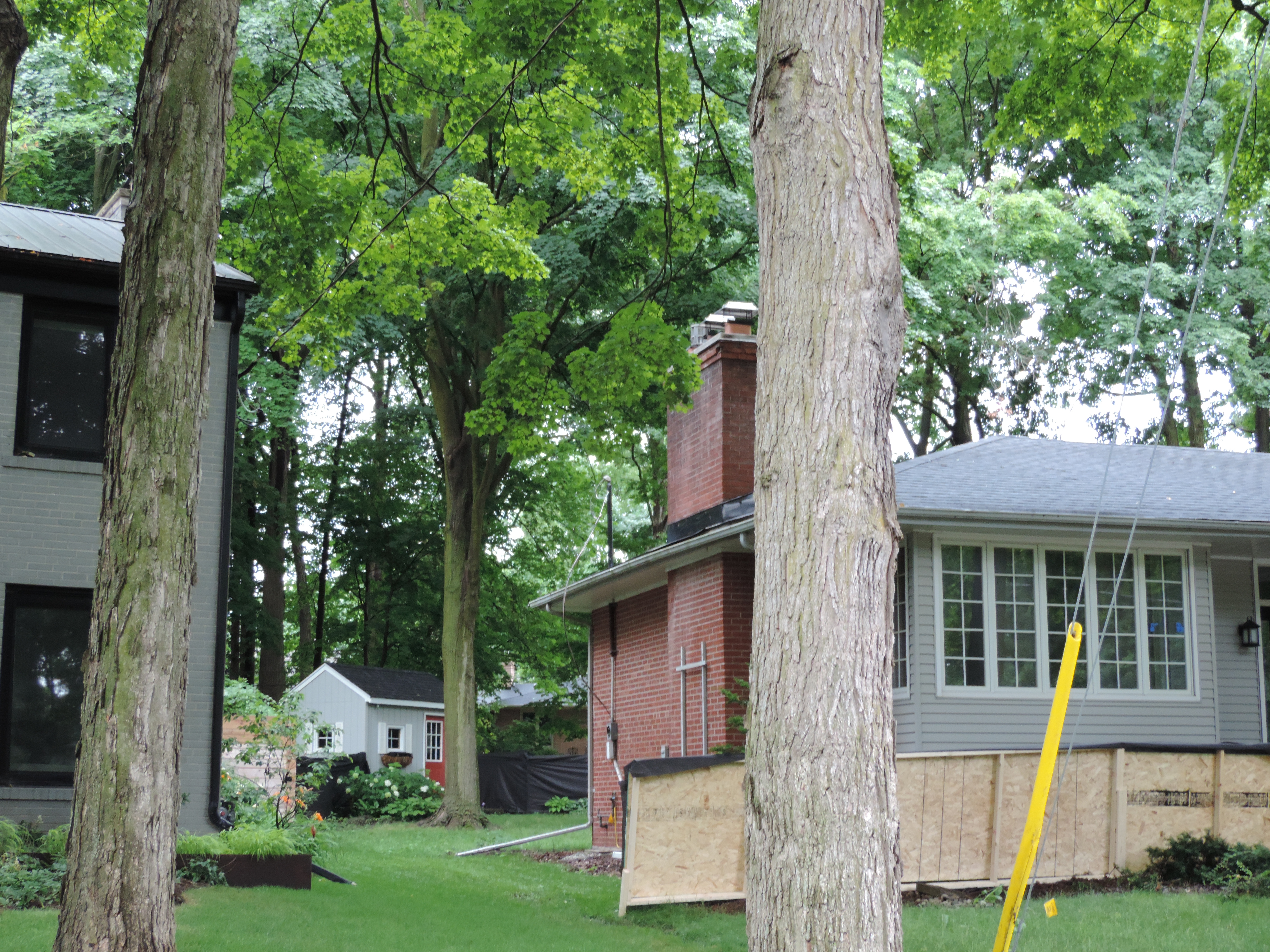
This time it is a Sugar Maple somewhere between 100-125 years old.
A few weeks ago I wander along Beechwood Crescent and learn the extensive tree canopy produces its own wonderful micro climate. One resident tells me his air conditioning goes on for a handful of days every year. For the rest of the time, the trees provide natural air conditioning.
So it is very sad news that such a majestic and healthy old tree with its huge green leafy canopy should fall to the chainsaw.
An application to redevelop the lot and build a new house has been approved by the Town but residents resisted the application because century old trees would be affected. I am told by people who know about these things that the proposed new house could have been slightly realigned, allowing the trees to remain undisturbed. But that didn’t happen. Probably too much hassle.
The photos show the tree (in front of the white wooden outhouse with the red door) in July and the empty space today where it once lived and breathed, minding its own business.
As it happens, the Town of Newmarket is now asking us what we think of trees and what we should be doing to protect trees on private property. The Town’s website tells us:
“Trees are a valuable asset to us as individuals but also to the whole community at large. As Newmarket grows it is important to help keep as many trees as possible. We would especially like to keep mature trees since they provide the most benefits and have the most value. Please join this discussion on the value mature trees and how a tree on your property contributes benefits to all of Newmarket. Feel free to share your opinions on the value of trees in Newmarket and how trees can best serve the Newmarket community.
We want to know: What is the best way to protect trees on private property?”
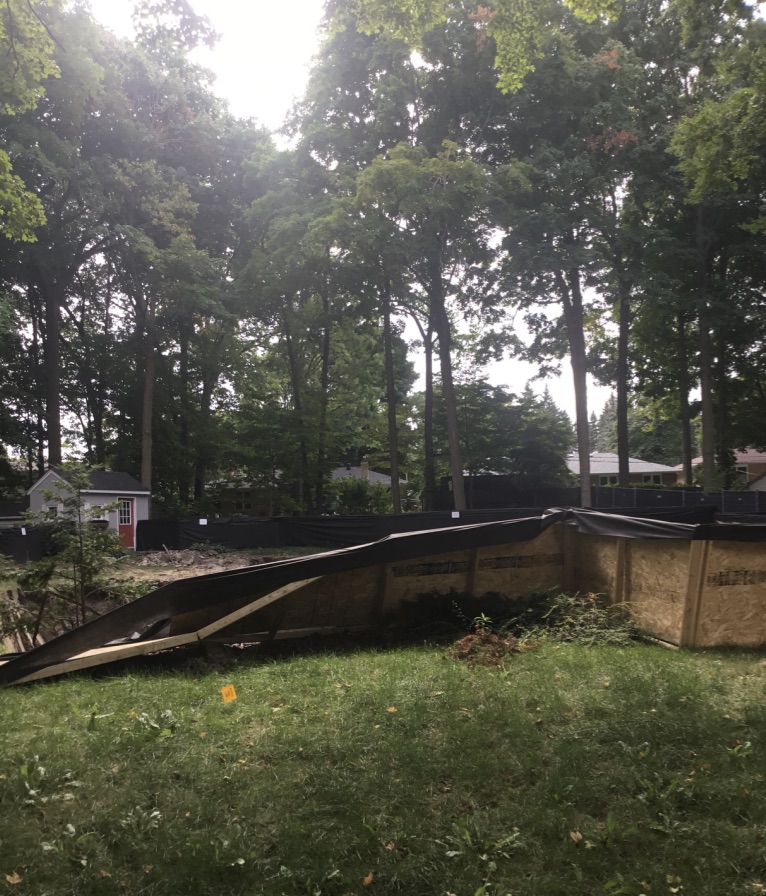
I am tempted to say:
“If you want to protect trees it is probably not a good idea to chop them down.”
But perhaps that's too glib.
Seems to me that if a tree is mature and healthy we should bend over backwards to keep it. If it is significant (definition to follow) it should be protected.
Of course, many builders and developers feel threatened by trees. They can get in the way of plans to redevelop.
If so they’ve gotta go. Just ask Norm “Chainsaw” Stapley who left his own unique and indelible mark on Beechwood Crescent.
The very feature that makes Beechwood Crescent so visually and environmentally attractive is being casually destroyed.
In any event the deed is now done.
 And, in the way of these things, the Town is now consulting the public on how best to save trees on private property. An Information Report presented to councillors on 22 August 2018 tells them:
And, in the way of these things, the Town is now consulting the public on how best to save trees on private property. An Information Report presented to councillors on 22 August 2018 tells them:
Tree Cutting By-law – Council have directed staff to prepare a by-law regulating and protecting significant trees on private property. Consultation for the project is currently underway. Feedback is being garnered from residents through the HeyNewmarket website. In the late fall/early winter staff will undertake a phone survey similar to that which was done for the recreational vehicle parking zoning by-law amendment. In Q1 of 2019, staff will consolidate the feedback and report to Council providing options on how to protect trees on private property.
Will participating in this survey make a blind bit of difference?
Who knows?
But since trees can’t answer phone surveys or fill in questionnaires we who can should do so on their behalf.
This email address is being protected from spambots. You need JavaScript enabled to view it.
- Details
- Written by Gordon Prentice
Newmarket Mayoral candidate Talib Ansari has posted his election platform. 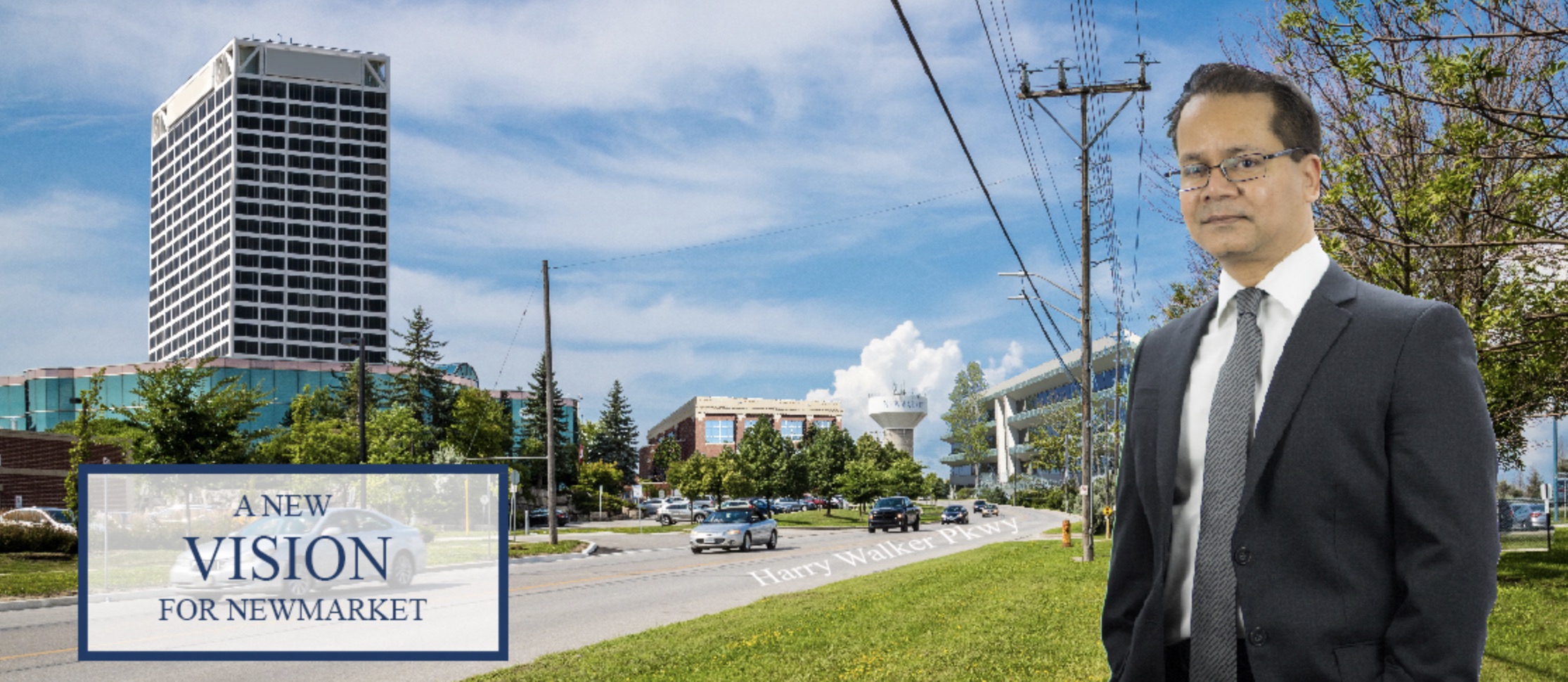
You can read it here.
Ansari, an accountant, is the new kid on the block. He is going for the top job having never run for elected office before.
NTAG (Newmarket Taxpayers Advocacy Group) is organising hustings for Mayoral candidates at Madsen’s Greenhouses from 7pm-9pm on Wednesday 19 September 2018 for Joe Wamback and Talib Ansari and from 7pm-9pm on Wednesday 3 October 2018 for John Taylor.
The municipal election is on Monday 22 October 2018.
Advance voting by phone or internet is from 10am on 13 October to 8pm on 22 October 2018.
This email address is being protected from spambots. You need JavaScript enabled to view it.
Page 125 of 268